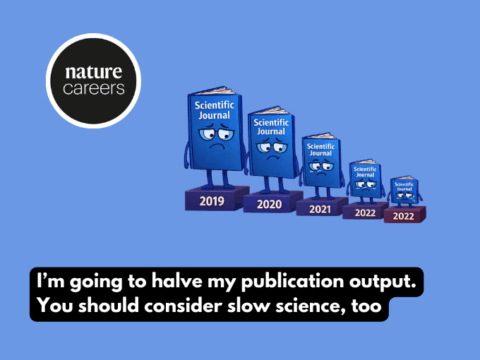 It’s no secret that an academic career has many challenges; short-term contracts, low pay, long hours — as well the uncertain, exploratory nature of science itself. These challenges don’t go away with tenure: academic time is getting increasingly proscribed, funding is reducing, more is expected from less, management is becoming more remote. As a principal investigator (PI), I am constantly juggling tasks and hopping from one uncertainty to the next: yes, I have a job, but I still need to find money to pursue my research and develop the careers of my team.
It’s no secret that an academic career has many challenges; short-term contracts, low pay, long hours — as well the uncertain, exploratory nature of science itself. These challenges don’t go away with tenure: academic time is getting increasingly proscribed, funding is reducing, more is expected from less, management is becoming more remote. As a principal investigator (PI), I am constantly juggling tasks and hopping from one uncertainty to the next: yes, I have a job, but I still need to find money to pursue my research and develop the careers of my team.
As with most academics, I have considered quitting. The three times that I came closest were six months into my doctorate, when absolutely nothing was working; writing up my PhD thesis, which drove me to despair; and the first big grant rejection early in my PI position. I still wonder about alternative career paths. I’ve worked in academia my whole adult life (with a period in the army reserves). The little voice suggesting something better definitely gets louder when I am weighed down with admin or stresses about how to keep the laboratory going.
The structural challenges in academia are not going away soon. In the United Kingdom, where I work, an increased workload, reduced pensions and the destabilization of long-term positions are making academia as a career increasingly unattractive. Recent survey data paints a picture of many, many mid-career scientists who are extremely dissatisfied with their career opportunities. Data from Advance HE, a charity based at the University of York, UK, that champions improvements in higher education, suggest a slight decline in postdoc numbers between 2019 and 2021. The net impression is that early-career scientists are being deterred from entering academic careers.

 Print This Post
Print This Post




